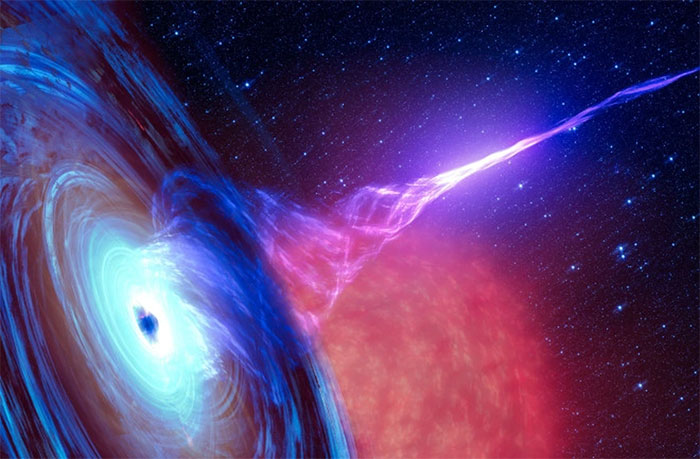Can you read this number? This is the estimated number of black holes in the vast universe.
Black holes have long been a mysterious concept for humanity because, by nature, we cannot see them in a conventional way. Therefore, it is challenging to know exactly how many black holes exist in the universe.

Black holes account for nearly 1% of the total normal matter in the observable universe.
However, this does not deter scientists in their efforts to decode the greatest mysteries of the universe. According to a recent study based on the formation of stars and binary stars, an estimate of the number of black holes in the universe has been proposed.
This number will astonish you. It is 40,000,000,000,000,000,000,000, or 40 quintillion black holes, which account for nearly 1% of the total normal matter in the observable universe.
According to astrophysicist Alex Sicilia from the International School for Advanced Studies (SISSA), this work combines a detailed model of stellar evolution and the level of metal enrichment in individual galaxies to solve the problem.
He stated that this is one of the first and most significant calculations regarding the amount of black holes in the history of the universe’s formation.
The research team also compared their results with gravitational wave data and found that their estimate of the black hole merger rate aligns with observable data. This helps scientists affirm that star cluster mergers are likely the cause of the black holes we have observed.
By calculating the growth rate of black holes over time, researchers were also able to provide estimates of the number of black holes in the early universe. This is of great interest as it may reveal the history of the universe’s formation, especially after the Big Bang event.

















































